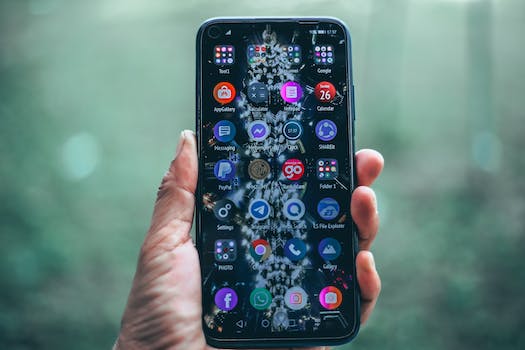Omegle is an online chat platform that allows users to connect with random strangers for text or video chats. It has gained popularity over the years and has been the subject of debate regarding whether it can be addictive. In order to understand the psychology behind the potential addictiveness of Omegle chat, it is essential to explore a few factors.
One factor that contributes to the potential addictiveness of Omegle is the element of uncertainty. When engaging in a conversation with a random stranger, there is no way to predict what kind of person one will encounter or what topics may be discussed. This uncertainty can be exciting and stimulating, leading individuals to continually seek new experiences and conversations. The possibility of encountering someone interesting or having an engaging discussion can be alluring, promoting the desire to continue using Omegle.
Another aspect that may contribute to addiction is the concept of social validation. Human beings have a natural desire for social interaction and approval from others. Omegle provides an avenue for individuals to meet new people, potentially forming new social connections and receiving validation or attention. This validation can release dopamine in the brain, which is associated with pleasure and reward. As a result, individuals may find themselves seeking to consistently replicate this experience, leading to potential addictive behavior.
Furthermore, the convenience and accessibility of Omegle also play a role. With just a few clicks, users can connect with others from anywhere in the world. This ease of use can make it difficult to resist the temptation of using Omegle regularly, especially if one finds it difficult to establish social connections in their offline life.
It is also worth mentioning the concept of FOMO (Fear of Missing Out). Omegle provides a platform for individuals to experience various conversations and meet people they would not usually encounter in their day-to-day lives. This fear of missing out on potentially interesting or exciting exchanges can drive individuals to continuously engage with Omegle, leading to addictive patterns.
However, it is important to note that not everyone who uses Omegle will develop an addiction. Factors such as individual vulnerability, personal circumstances, and overall psychological well-being can influence the likelihood of addiction. If a person is already experiencing loneliness, depression, or other mental health issues, they may be more susceptible to addictive behavior on platforms like Omegle.
In conclusion, while Omegle chat can be addictive for some individuals, it is necessary to consider the underlying psychological factors. The element of uncertainty, social validation, convenience, fear of missing out, and personal circumstances can all contribute to addictive tendencies. Recognizing these factors and setting healthy boundaries regarding the usage of such platforms is essential in preventing potential addiction. 
The Psychology of Chat Addiction: Understanding the Urge to Keep Coming Back to Omegle
Chat addiction is a growing concern in today’s digital era. With the rise of anonymous chat platforms like Omegle, more and more individuals are finding themselves hooked on the thrill of connecting with strangers. In this article, we will delve into the psychology behind chat addiction, exploring the reasons why people feel the need to keep coming back to Omegle.
The Power of Anonymity
One of the main factors that contribute to chat addiction is the anonymity that platforms like Omegle offer. Behind the safety of a screen, individuals can shed their inhibitions, explore different aspects of their personality, and engage in conversations they might not otherwise have in real life.
This sense of anonymity creates a sense of freedom and excitement. It’s exhilarating to meet new people, exchange thoughts and ideas, all while knowing that your true identity remains hidden. This addictive rush keeps users coming back for more, craving the next encounter and the temporary escape it provides.
The Need for Connection
Humans are social beings by nature. We crave connection and interaction with others. However, in today’s fast-paced world, it can be challenging to form meaningful connections in real life. This is where chat platforms like Omegle come into play.
Omegle allows individuals to connect with strangers from all over the world, providing an avenue for socializing and fostering new relationships. The thrill of meeting someone new, experiencing diverse cultures, and engaging in stimulating conversations satisfies our innate need for connection.
The Influence of Dopamine
When engaging in chat conversations on platforms like Omegle, our brains release dopamine, a chemical that plays a key role in the reward and pleasure centers. Dopamine creates a sense of excitement and satisfaction when we have a positive experience, making us crave more of it.
This release of dopamine is reinforced through intermittent reinforcement, a psychological mechanism that keeps us hooked. Each time we log in to Omegle, we anticipate an exciting and rewarding interaction. The occasional positive encounters reinforce the addictive behavior, making it harder for users to resist the urge to keep coming back.
The Downsides of Chat Addiction
While chat addiction may seem harmless at first, it can have negative consequences on an individual’s mental health and overall well-being. Excessive time spent on Omegle can lead to social withdrawal, anxiety, and depression.
Moreover, the anonymity that initially attracted users can also be a double-edged sword. It opens the door to cyberbullying, harassment, and manipulation. Without any real-life repercussions, individuals may engage in toxic behavior or become victims themselves.
Breaking Free from Chat Addiction
If you or someone you know is struggling with chat addiction, it is essential to take steps towards breaking free from this cycle. Firstly, acknowledging the addiction is the first step towards recovery. Seeking help from professionals or support groups can provide valuable guidance and support.
Additionally, finding healthy alternatives to channel your need for social interaction is crucial. Engage in activities that promote real-life connections, such as joining clubs, volunteering, or participating in group events. Disconnecting from the virtual world and nurturing genuine relationships can help overcome the urge to keep coming back to chat platforms like Omegle.
Conclusion
Understanding the psychology behind chat addiction can shed light on the reasons why individuals find themselves trapped in its grip. The allure of anonymity, the need for connection, and the influence of dopamine all contribute to the overwhelming urge to keep coming back to Omegle. However, it is important to recognize the downsides of chat addiction and take proactive steps towards breaking free.
Remember, a healthy balance between virtual and real-life interactions is crucial for overall well-being. By prioritizing genuine connections and seeking help when needed, individuals can overcome chat addiction and regain control of their lives.

Unveiling the Addictive Nature of Omegle Chat: Exploring the Psychological Triggers
In today’s digital age, social media platforms and online chat rooms have become an integral part of our lives. One such platform that has gained immense popularity is Omegle chat. This article aims to delve into the addictive nature of Omegle and uncover the psychological triggers that make users hooked to this platform.
Omegle chat, launched in 2009, offers an anonymous space for users to connect with strangers via text or video chats. The allure of meeting new people from different corners of the world, without revealing one’s identity, makes this platform irresistible for millions of users.
One of the main psychological triggers that contribute to the addictive nature of Omegle chat is the element of unpredictability. The excitement of not knowing who you will be matched with next creates a sense of anticipation and thrill. This unpredictability releases dopamine in the brain, a neurotransmitter associated with pleasure and reward, reinforcing the addictive behavior.
A sense of curiosity also plays a vital role in keeping users engaged with Omegle chat. The opportunity to explore different perspectives, cultures, and experiences fuels this curiosity. Users are constantly seeking new encounters and conversations, which keep them coming back for more.
- Privacy and anonymity are other key factors that make Omegle chat irresistible to many. The ability to freely express oneself without the fear of judgment or consequences empowers users to engage in conversations more openly.
- The ease of use and accessibility of Omegle chat further contribute to its addictive nature. With just a few clicks, users can enter the world of endless conversations, catering to their need for social interaction, especially during times of loneliness or boredom.
- However, it is important to acknowledge the potential dangers associated with Omegle chat. The anonymity that attracts users can also lead to inappropriate behavior, cyberbullying, and even encounters with predators. Users must exercise caution and ensure their safety while engaging in conversations on this platform.
In conclusion, Omegle chat holds a powerful allure due to its addictive nature. The elements of unpredictability, curiosity, privacy, and accessibility contribute to this addiction. While it offers a unique and exciting way to connect with strangers, users must also be aware of the potential risks involved. By understanding the psychological triggers at play, we can navigate the world of Omegle chat more consciously and responsibly.

The Role of Dopamine in Omegle Chat Addiction: How the Brain Keeps Us Hooked
In today’s digital era, social media platforms and online chat rooms have become an essential part of our daily lives. One such platform is Omegle, which offers anonymous text and video chats with strangers. While it may seem harmless, Omegle chat addiction is a real problem that affects individuals of all age groups. In this article, we will explore the role of dopamine in Omegle chat addiction and how the brain keeps us hooked.
Before diving into the addictive nature of Omegle chats, it’s important to understand what dopamine is and how it affects the brain. Dopamine is a neurotransmitter that plays a crucial role in our brain’s reward and pleasure systems. It is released when we engage in pleasurable activities such as eating delicious food or engaging in sexual activities. This release of dopamine creates a sense of euphoria and reinforces the behavior that led to its release.
When we engage in Omegle chats, the brain’s reward system is activated. Each time we receive a positive interaction or an interesting conversation, dopamine is released, resulting in feelings of pleasure and satisfaction. This immediate gratification is what keeps us coming back for more. The brain becomes conditioned to associate Omegle chats with pleasure, creating a powerful desire to engage in the behavior repeatedly.
Furthermore, the unpredictable nature of these chats adds to the addictive nature of Omegle. The brain craves novelty and seeks out new and exciting experiences. When we engage in Omegle chats, we never know who we will be matched with or what kind of conversation we will have. This unpredictability triggers the release of even more dopamine, creating a strong reinforcement loop.
| Signs of Omegle Chat Addiction |
|---|
| 1. Excessive use: Spending hours on end engaging in Omegle chats, neglecting other important responsibilities. |
| 2. Withdrawal symptoms: Feeling restless or irritable when unable to access Omegle. |
| 3. Neglected relationships: Prioritizing Omegle chats over real-life relationships and social interactions. |
| 4. Decline in productivity: A noticeable decline in work or academic performance due to excessive time spent on Omegle. |
| 5. Inability to quit: Making unsuccessful attempts to reduce or stop using Omegle chats. |
It is important to recognize the signs of Omegle chat addiction and seek help if needed. Cognitive-behavioral therapy and support groups can be valuable resources in overcoming this addiction.
In conclusion, Omegle chat addiction taps into the brain’s reward system, primarily driven by the release of dopamine. The immediate gratification and unpredictable nature of these chats keep us hooked, leading to excessive use and neglect of other aspects of life. Being aware of the signs of addiction and seeking appropriate support is essential in breaking free from this addictive behavior.

Escaping Reality: Exploring the Emotional Appeal of Omegle Chat
In today’s fast-paced and digital world, people are constantly seeking for ways to escape their realities, even if it is just for a brief moment. One platform that has gained immense popularity in fulfilling this desire is Omegle Chat. This online chat platform allows individuals to have anonymous conversations with strangers from all around the world, creating a unique emotional appeal that keeps users coming back for more.
One of the main attractions of Omegle Chat lies in its ability to provide an escape from everyday life. Whether it is the stress of work or personal issues, users can find solace in chatting with someone completely unknown. The anonymity factor allows individuals to shed their inhibitions and open up about their innermost thoughts and feelings, creating a safe space for emotional expression.
Furthermore, the element of surprise adds to the allure of Omegle Chat. With each new connection, users never know who they will encounter. This sense of unpredictability heightens the emotional engagement, as individuals are constantly on the lookout for interesting conversations or connections that resonate with their own experiences.
Another noteworthy aspect is the international aspect of Omegle Chat. Users have the opportunity to connect with individuals from various cultures and backgrounds, broadening their perspectives and understanding of the world. This cultural exchange not only adds value to the conversations but also promotes empathy and tolerance among users.
- The sense of anonymity allows for greater self-reflection and introspection.
- Omegle Chat offers a platform for individuals to discuss taboo topics without judgment.
- The element of surprise keeps users engaged and curious about the next conversation.
- The international aspect promotes cultural exchange and understanding.
While Omegle Chat provides a form of escapism, it is crucial to approach this platform with caution. As with any online interaction, users should prioritize their safety and be mindful of sharing personal information. Setting boundaries and disengaging from conversations that make them uncomfortable is essential.
In conclusion, Omegle Chat offers a unique emotional appeal, allowing individuals to momentarily escape their realities and engage in anonymous conversations. The combination of anonymity, surprise, and international connections creates a platform for emotional expression and cultural exchange. However, it is important to use this platform responsibly and prioritize personal safety.

Breaking Free from Omegle Chat Addiction: Strategies for Overcoming the Compulsive Urge
Omegle, the anonymous chat platform, has gained immense popularity in recent years. While it offers a means of connecting with strangers from around the world, it can quickly turn into an addictive and time-consuming habit. If you find yourself constantly itching to engage in Omegle chats, it’s time to break free from this addiction. In this article, we will discuss effective strategies to overcome the compulsive urge and regain control of your time and life.
1. Recognize the Problem
The first step in overcoming any addiction is to acknowledge that you have a problem. Reflect on how Omegle chats are negatively impacting your life: Are you spending excessive amounts of time on the platform? Is it affecting your relationships, work, or studies? Once you accept that this habit is taking a toll on your overall well-being, you can move towards finding a solution.
2. Set Clear Boundaries and Goals
Define specific boundaries for your Omegle usage. Set a daily time limit for yourself and stick to it. For example, allow yourself to engage in chats for a maximum of 30 minutes each day. Additionally, establish goals for your time spent online. Whether it’s learning a new language, researching a topic of interest, or connecting with like-minded individuals, having a purpose will help you stay focused and prevent mindless scrolling.
3. Find Healthy Alternatives
One of the main reasons for compulsive Omegle chat addiction is the need for human connection and interaction. Instead of relying solely on virtual conversations, seek out healthier alternatives. Join clubs, attend social events, or participate in group activities that align with your interests. By engaging in face-to-face interactions, you will not only satisfy your need for connection but also build meaningful relationships.
4. Practice Mindfulness
Mindfulness techniques can be incredibly beneficial in breaking free from any addiction. When the urge to indulge in Omegle chats arises, take a moment to pause and breathe. Observe your thoughts and emotions without judgment. By practicing mindfulness, you can develop a greater sense of self-awareness and control over your actions.
5. Seek Support
Don’t underestimate the power of support when it comes to overcoming addiction. Reach out to friends, family members, or professionals who can provide guidance and encouragement on your journey. Consider joining support groups or online forums where you can connect with individuals who are going through a similar struggle. Remember, you are not alone in this, and seeking support is a sign of strength.
- Recognize the problem
- Set clear boundaries and goals
- Find healthy alternatives
- Practice mindfulness
- Seek support
Breaking free from Omegle chat addiction may not be easy, but with determination and the right strategies, it is achievable. By recognizing the problem, setting boundaries, finding healthier alternatives, practicing mindfulness, and seeking support, you can regain control over your life and use your time more intentionally. Remember, breaking free from this addiction is a journey, so be patient and kind to yourself along the way.
Frequently Asked Questions
Q: Is Omegle chat addictive?
A: Omegle chat can be addictive for some individuals. The constant need for social interaction and the excitement of meeting new people can lead to addictive behaviors.
Q: What are the signs of Omegle chat addiction?
A: Signs of Omegle chat addiction may include spending excessive amounts of time on the platform, neglecting important tasks and responsibilities, experiencing withdrawal symptoms when not using the platform, and feeling the need to constantly seek validation from strangers.
Q: Why do people get addicted to Omegle chat?
A: People may get addicted to Omegle chat due to various psychological factors. The platform provides a sense of anonymity, novelty, and instant gratification, which can be appealing to individuals seeking social interactions or escape from reality.
Q: How can I overcome Omegle chat addiction?
A: Overcoming Omegle chat addiction requires self-awareness and self-discipline. Setting limits on usage, finding alternative hobbies or activities, seeking support from friends or professionals, and practicing healthy coping mechanisms can help in overcoming the addiction.
Q: Are there any risks associated with Omegle chat addiction?
A: Yes, there are potential risks associated with Omegle chat addiction. These may include neglecting real-life relationships, privacy concerns, exposure to inappropriate content, and the negative impact on mental health and overall well-being.

